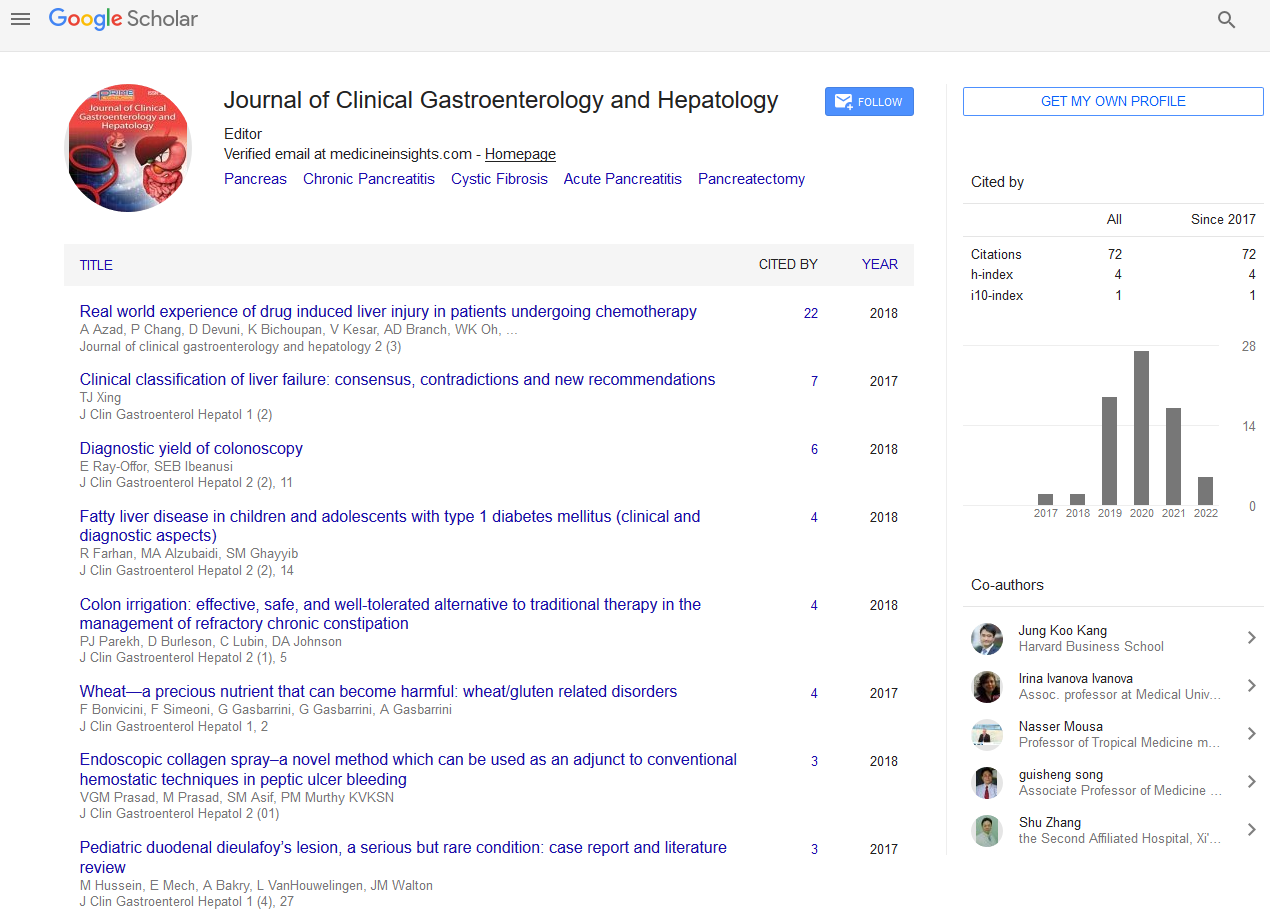Commentary - (2024) Volume 8, Issue 4
The Large Intestine: A Vital Component of Digestive Health, Nutrient Absorption, and Microbial Ecosystem
Wright Amelia*
Department of Gastroenterology, University of Health Sciences, UK
*Correspondence:
Wright Amelia,
Department of Gastroenterology, University of Health Sciences,
UK,
Email:
Received: 31-Jul-2024, Manuscript No. IPJCGH-24-21627;
Editor assigned: 02-Aug-2024, Pre QC No. IPJCGH-24-21627 (PQ);
Reviewed: 16-Aug-2024, QC No. IPJCGH-24-21627;
Revised: 21-Aug-2024, Manuscript No. IPJCGH-24-21627 (R);
Published:
28-Aug-2024, DOI: 10.36648/2575-7733.8.4.36
Description
The large intestine, also known as the colon, is a crucial
component of the human digestive system. It plays an essential
role in the final stages of digestion, absorbing water and
electrolytes while preparing waste for excretion. The large
intestine is a complex structure that not only facilitates the
elimination of indigestible food matter but also serves as a
habitat for a diverse array of microorganisms that contribute
to overall health. Understanding the anatomy and functions
of the large intestine is vital for appreciating its significance
in digestive health and the potential implications of various
disorders that can affect it. The appendix, a small, tube-like
structure, is attached to the cecum and is thought to play a role
in immune function, although its precise purpose is still debated.
As food travels through the ascending colon, it moves upward
on the right side of the abdomen before traversing across the
upper abdomen in the transverse colon, then descending on
the left side through the descending colon. Finally, the sigmoid
colon leads into the rectum, where waste is stored before
being expelled from the body. The primary function of the large
intestine is to absorb water and electrolytes from the remaining
indigestible food matter. This process is crucial for maintaining
the body’s fluid and electrolyte balance. As the large intestine
absorbs water, the waste material becomes more solid, forming
faeces. The consistency of faeces is influenced by various
factors, including hydration status, diet, and the presence of
certain gut bacteria. A well-functioning large intestine ensures
that waste is efficiently processed and excreted, preventing
complications such as constipation or diarrhoea. In addition
to absorption, the large intestine serves as a habitat for
trillions of bacteria that comprise the gut microbiota. These
microorganisms play an integral role in health by fermenting
undigested carbohydrates, producing short-chain fatty acids
that serve as an energy source for colon cells and contribute to
overall gut health. Colorectal cancer, one of the most prevalent
cancers worldwide, can develop from precancerous polyps
in the large intestine, making early detection and screening
essential. Maintaining a healthy large intestine is vital for
preventing these conditions. A balanced diet rich in fibres,
fruits, vegetables, and whole grains promotes regular bowel
movements and supports the growth of beneficial gut bacteria.
Fibre is particularly important as it adds bulk to stool and helps
prevent constipation. Hydration is also crucial, as adequate
fluid intake aids in the absorption of water and the formation
of healthy stool. Regular physical activity is another important
factor that contributes to digestive health, helping to promote
regular bowel function. In conclusion, the large intestine plays
an essential role in the digestive process, serving as a site for
water absorption and waste elimination while hosting a diverse
microbial community. Understanding the functions of the large
intestine and the factors that influence its health is crucial for
preventing and managing various gastrointestinal disorders. As
research continues to explore the intricate relationship between
gut health and overall well-being, it becomes increasingly clear
that nurturing the health of the large intestine is fundamental
to maintaining good health.
Acknowledgement
None.
Conflict Of Interest
The authors declare that they have no conflict of interest.
Citation: Amelia W (2024) The Large Intestine: A Vital Component of Digestive Health, Nutrient Absorption, and Microbial Eco�system. J Clin Gastroenterol Hepatol. 8:36.
Copyright: © 2024 Amelia W. This is an open-access article distributed under the terms of the Creative Commons Attribution
License, which permits unrestricted use, distribution, and reproduction in any medium, provided the original author and source
are credited.

